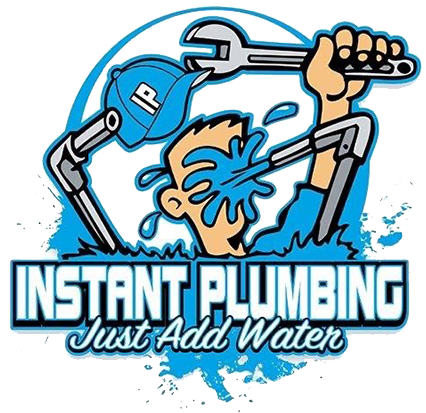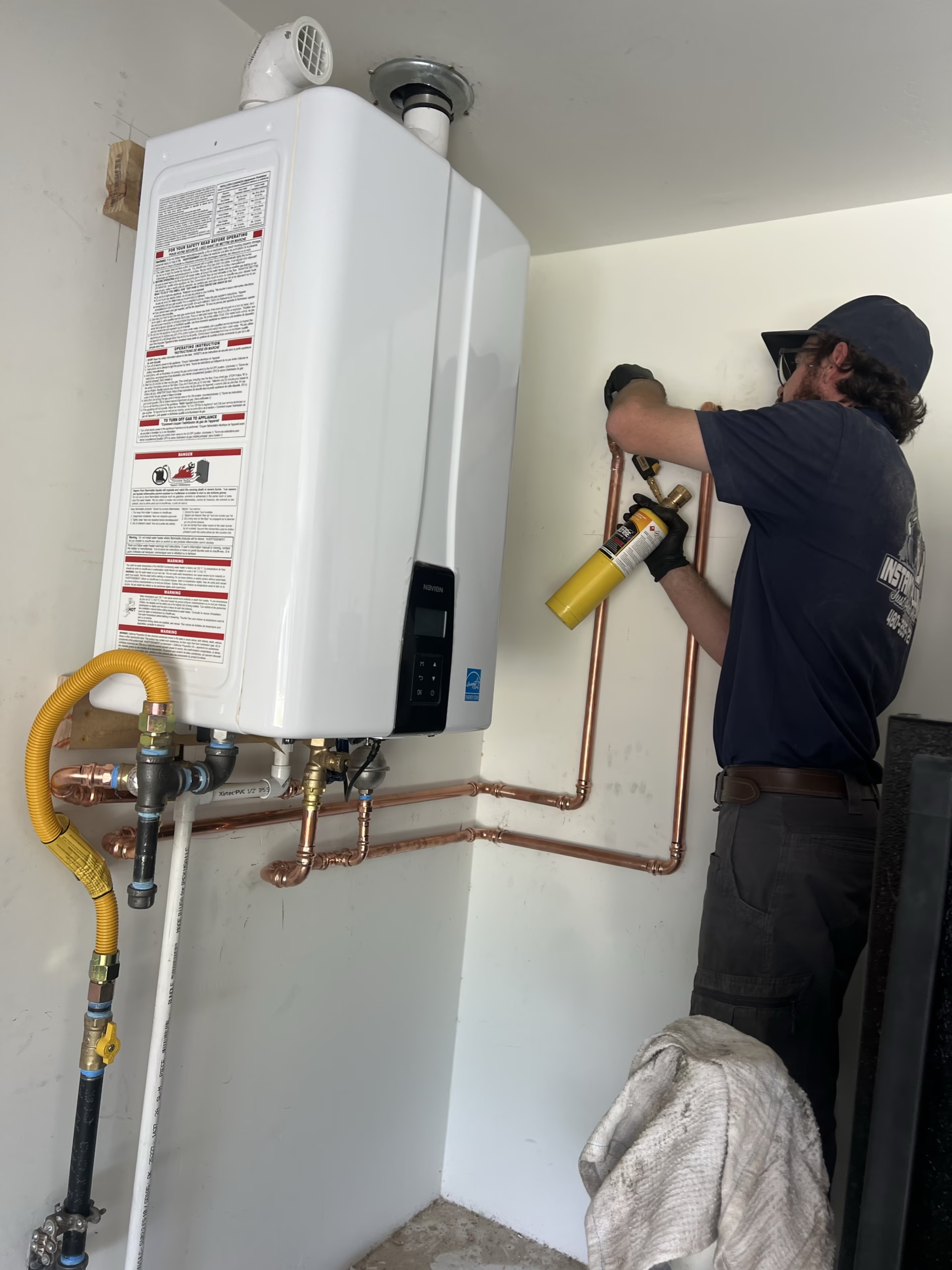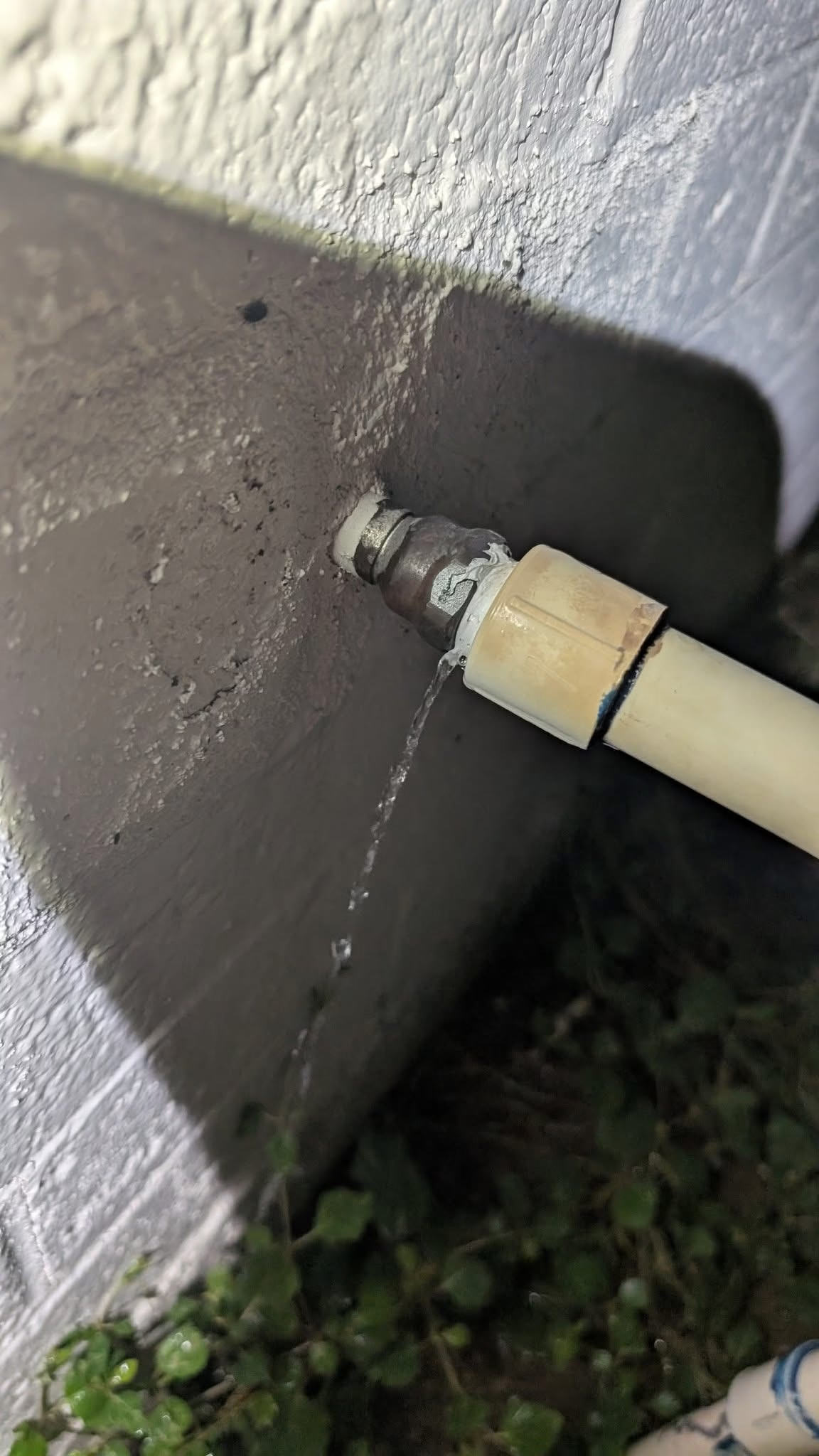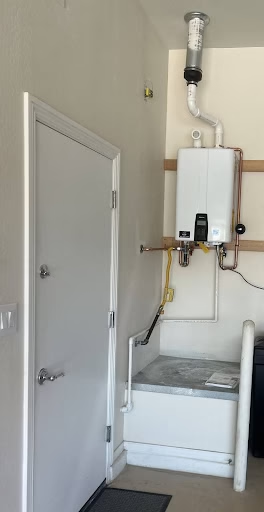There’s nothing quite like the feeling of turning on your shower and being greeted by a blast of cold water (especially in the winter!). Or maybe you’ve noticed a strange rumbling sound coming from the garage, like a rock tumbler filled with coins. For many homeowners in Glendale, Phoenix, and across the Valley of the Sun, these are the first clues that something is wrong with their water heater.
You stand there, a little confused and a lot worried. Your mind starts racing with questions: “Is this a simple fix, or am I looking at a major disaster? How much is this going to cost? What if I replace it and it breaks again next month?” We see this look on a lot of faces, and we hear these same concerns every day. It’s a big decision, and it can feel overwhelming. You just want to make the right choice for your family and your budget, and you’re not sure where to start.
At Instant Plumbing, we get it. We’ve been helping our neighbors in the Phoenix area with their water heater problems since 2001. We’re not here to push you into a new water heater you don’t need. Instead, our goal is to give you all the information you need to feel confident in your decision, whether that’s a repair or a full replacement. We believe an informed homeowner is a happy homeowner. Let’s walk through this together.
The Ultimate Dilemma: When Your Water Heater Stops Working
When the hot water stops flowing, it’s usually not a gradual process. It just…stops. And that’s when the panic can set in. But by understanding the signs of a failing water heater, you can often prepare yourself for what’s to come.
Why Homeowners in Phoenix, Arizona Feel Stressed About Hot Water
In Arizona, a reliable water heater is more than just a luxury—it’s a necessity. From cleaning up after a long day in the heat to having hot water for laundry, we rely on these machines more than we think. So when they fail, it throws a wrench in our daily routines. The fear of a freezing cold shower is real, and the thought of a big, unexpected repair bill adds to that stress. Our job is to help take that stress away by giving you a clear path forward.
Common Signs That Your Water Heater is Failing
A complete lack of hot water is the most obvious sign, but there are other, more subtle clues to watch for. One of the most common signs is a loud rumbling or banging noise. That sound is caused by sediment buildup at the bottom of the tank. As the water heats up, it traps air in the sediment, creating the noises. This is a common issue with the hard water we have in the Phoenix area. Another serious red flag is if you notice water leaking around the base of the tank. A leak usually means the tank itself is corroded and has a crack. This is a problem that cannot be repaired and requires an immediate replacement. You should also be concerned if the hot water coming from your faucet looks rusty or cloudy, as this could mean the inside of your water heater tank is rusting. Finally, a clear sign of trouble is if your hot water runs out much faster than it used to. This could mean the heating elements are failing, or the tank could be full of sediment, reducing its capacity.
The First Step: Diagnosis and Getting a Professional Opinion
When you notice any of these issues, the very first step is to call a professional plumber. A skilled plumber from Instant Plumbing can do a quick but thorough inspection to figure out exactly what’s wrong. We can tell you if it’s a simple fix, or if it’s a sign of a bigger, more serious problem. Our diagnosis gives you the facts you need to make your decision.
Key Factors to Consider Before You Decide
When facing a repair or replace dilemma, it’s not always about the immediate cost. You have to look at the bigger picture. Here’s what we suggest you think about.
The Age of Your Water Heater: The “Magic” Number
Most traditional tank water heaters have a lifespan of about 6 to 10 years. If your water heater is older than eight years, and you’re facing a repair that costs more than a few hundred dollars, it’s almost always a better idea to replace it. An eight-year-old water heater is on borrowed time, and a repair now could just be a bandage on a bigger problem waiting to happen. If it’s younger than six years, a repair is usually a good option.
Cost of the Repair vs. Cost of a New Unit
This is the big one. As a general rule of thumb, if the cost of the repair is more than 50% of the cost of a brand new water heater, you should seriously consider replacing it. Spending a lot of money on an old unit that’s likely to fail again soon is just throwing good money after bad. We’ll always give you an honest diagnosis of both options so you can weigh the benefits clearly.
Understanding Your Water Heater’s Energy Efficiency
Water heater technology has come a long way. A new, energy-efficient water heater can save you a lot of money on your monthly utility bills. If your current unit is more than ten years old, it’s almost certainly using much more energy than a new model would. Over the course of a year, the energy savings from a new water heater can help offset the replacement cost. It’s like putting money back in your pocket every month.
The Severity and Frequency of Repairs
Have you had a plumber out to fix the same problem on your water heater multiple times in the last year? If so, that’s a clear sign that the unit is failing. Constant repairs are a hassle, and the time and money you spend on them could be put toward a new, reliable unit that won’t give you any more trouble for years to come.
The Case for Repairing Your Water Heater
Sometimes, a repair is the best and most cost-effective choice. It all depends on the problem and the age of your unit.
When a Simple Repair Is the Smartest Option
If your water heater is relatively new (less than 6 years old) and the problem is a minor, isolated issue, a repair is usually the way to go. This could be something like a broken heating element, a faulty thermostat, or a bad pressure relief valve. These are common problems that are cost effective to fix.
Common Water Heater Problems That Are Easily Fixed
There are a few common water heater problems that are easily fixed. A bad thermostat or a faulty heating element are often the first parts to go on electric water heaters. They’re straightforward to replace and not super expensive. Similarly, a faulty pressure relief valve is a safety device that prevents pressure from building up in the tank. If it’s leaking, it can often be replaced easily. For gas water heaters, a pilot light that won’t stay lit can often be fixed with a simple cleaning or a new part.
The Pros and Cons of Water Heater Repair
There are a few things to consider when deciding to repair. On the upside, it’s typically less expensive in the short term, and it’s a faster fix—you’ll have hot water again much sooner. This is a great way to get more life out of a newer unit. However, on the downside, a repair might not be a permanent fix, especially for older units. The repair could be a sign of a larger, underlying problem, and you won’t get the benefits of a more energy-efficient new model.
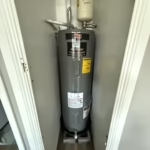
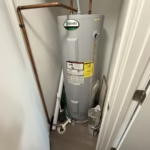
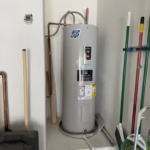
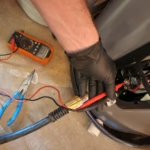
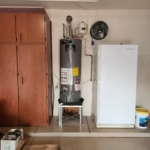
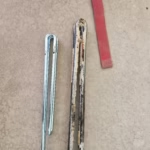
The Case for Replacing Your Water Heater
Sometimes, a repair just isn’t worth the trouble. When a water heater is too old or has a major problem, a replacement is the only logical choice.
When to Cut Your Losses and Invest in a New Unit
There are a few clear signs that it’s time to replace your water heater. If the water heater tank itself is leaking, a replacement is required. There is no way to fix a cracked or corroded tank. You should also consider a replacement if your unit is over 10 years old, even if it’s still working. Waiting for it to fail completely can leave you without hot water for days. Finally, if you’re constantly calling a plumber to fix the same problems, the unit is telling you it’s tired. It’s time to say goodbye and get a new one.
The Unexpected Costs of an Old, Failing Water Heater
An old water heater doesn’t just give you unreliable hot water—it can also be a hidden money pit. A major leak can cause serious flood damage to your home and belongings. A failing unit that uses more energy than it should is costing you extra on every single utility bill. By replacing it, you avoid these potential future costs and save money in the long run.
The Pros and Cons of Water Heater Replacement
When you replace your water heater, you get a brand-new, reliable unit that will last for years. You’ll save money on your utility bills with a more energy-efficient model, and you’ll get a full new manufacturer warranty. This also helps you avoid the stress of unexpected breakdowns and costly flood damage. Of course, the upfront cost is higher than a repair, and the installation takes more time than a simple repair.
Exploring Your Replacement Options: Tank vs. Tankless
If you’ve decided a replacement is the best choice, you have another decision to make: do you stick with a traditional tank water heater, or do you upgrade to a tankless model?
Traditional Tank Water Heaters: The Familiar and Reliable Choice
This is the kind of water heater most people are familiar with. It has a big tank that stores and heats a large amount of water at one time. The tank is filled with water, which is heated by a gas burner or electric heating elements. The hot water is then stored in the tank until you need it. This is a great choice for homes with higher hot water usage all at once, or for people who are on a tighter budget for the initial purchase. The pros are a lower initial cost, easy to install and reliable technology. The cons are that it can run out of hot water, takes up a lot of space, and is less energy-efficient.
Tankless Water Heaters: The Modern, Efficient Upgrade
Tankless water heaters are the sleek, modern cousin of the traditional tank. They heat water on demand, so you never run out. When you turn on a hot water faucet, a sensor turns on a powerful heating element that instantly heats the water as it flows through. When you turn the water off, the heater turns off. This is best for homes that want to save money on energy bills, have limited space or want an endless supply of hot water. The pros of a tankless unit are endless hot water, very high energy-efficiency (since you’re only heating water when you need it), and they take up much less space. Of course, they also have a higher initial cost, and require professional installation.
Making the Right Choice for Your Family’s Needs
The right choice depends on your family’s habits and budget. If you’re looking for an immediate solution that’s budget-friendly, a new tank water heater is a great option. If you’re ready for an investment that will save you money on energy bills and give you endless hot water for years to come, a tankless unit is a fantastic upgrade.
What to Do Next: Your Action Plan
Regardless of the age of your water heater, the first step is always the same: get a professional opinion.
Getting a Professional Water Heater Inspection in Phoenix
If you’re in Glendale, Phoenix, Scottsdale, or anywhere in the surrounding area and have a water heater issue, don’t wait for a disaster. Give us a call at Instant Plumbing. We’ll come to your home, check the unit, and give you an honest recommendation on whether to repair or replace.
How a Plumbing Expert Can Guide Your Decision
We’ll walk you through the pros and cons of both repair and replacement, giving you clear pricing for each option. We’ll also explain why one option might be better for your home based on the unit’s age, condition, and your family’s needs. We’ll empower you to make the choice that you feel best about.
Understanding the Installation Process
If you choose to replace your water heater, we’ll handle the entire process from start to finish. We’ll safely remove the old unit, install the new one, and make sure everything is running perfectly. We’re not just installing a new water heater, we are updating all the plumbing connections to the new water heater. We’ll also make sure to answer all your questions and make the process as smooth and painless as possible.
Frequently Asked Questions
Q: What is the average lifespan of a water heater?
A: A traditional tank water heater in the Phoenix area typically lasts between 6 to 10 years. Regular maintenance, like flushing the tank to remove sediment, can help it last longer.
Q: How much does it cost to replace a water heater?
A: The cost can vary quite a bit depending on the type of water heater (tank or tankless), the size of the unit, and the complexity of the installation. We always provide a free, no-obligation quote so you know the exact cost upfront.
Q: What is the most common reason for a water heater to fail?
A: In the Phoenix area, the most common reason for failure is corrosion and sediment buildup in the tank due to hard water. Over time, this buildup can cause the tank to leak or the heating elements to fail.
Q: Is it better to flush a water heater or replace it?
A: If your water heater is relatively new and in good condition, flushing it annually is a great way to prevent problems and extend its life. However, if the tank is old and has a leak, flushing it won’t fix the problem, and a replacement is necessary.
Q: Why is my water heater making a rumbling noise?
A: That rumbling sound is a very common sign of sediment buildup in the tank. The sediment settles at the bottom, and as the water heats up, it creates pressure underneath the sediment, causing the noise. This is a sign that the water heater is working harder than it should and that it’s a good idea to have it inspected.
